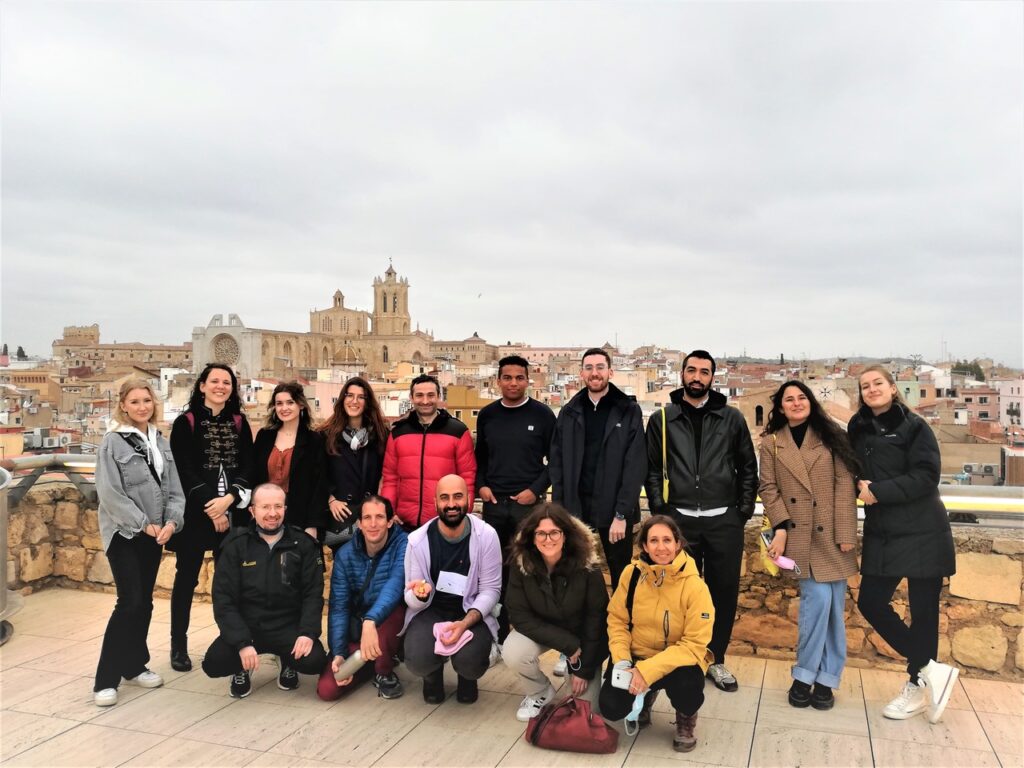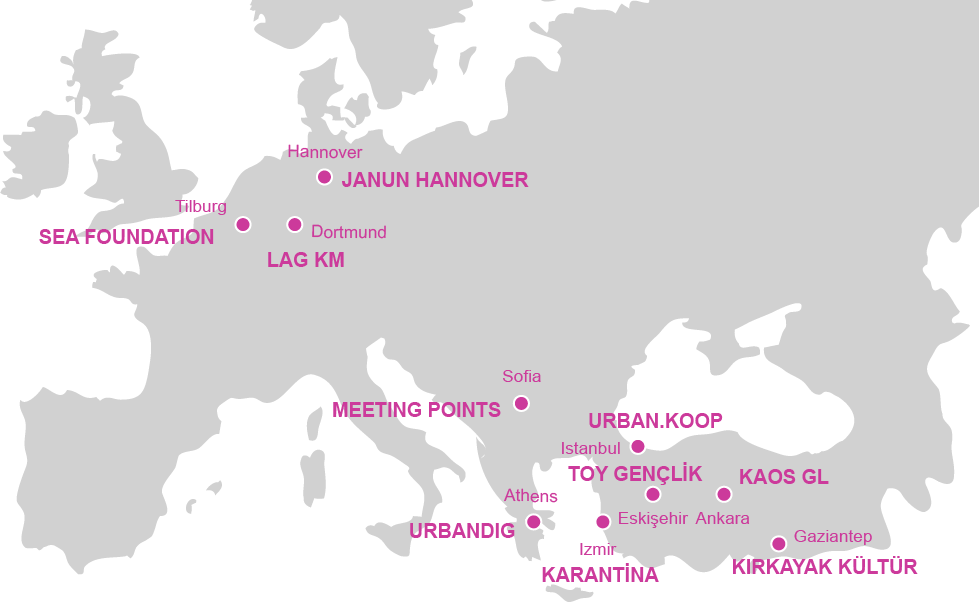


Karantina
Izmir, Turkey
www.karantinamekan.com
Areas of work: Contemporary art, cultural and artistic activities
Social media accounts: @Mekankarantina
Founded by Dâhili Bellek, 6x6x6 and Kendine Ait Bir Oda in January 2019; KARANTINA serves both as a collective space hosting founders’ ongoing projects and an initiative curating original projects on contemporary art, networking, mapping as well as documentation. Located at the ending point of Karataş and Karantina axis, which is well known for its diverse cultural past; KARANTINA hosts artist talks, exhibitions, screenings, forums and workshops while putting an emphasis on independent and digital publishing (fanzine, journals, podcasts, etc) as a means of documentation of the city’s cultural and artistic heritage as well as an artistic practice.

Meeting Points
Sofia, Bulgaria
www.meetingpoints.bg
Areas of work: Social change
Social media accounts: @meetingpointsbg
Founded in 2018 in Sofia, Bulgaria, Meeting Points’ efforts are mostly focused on strengthening social cohesion and building a more empathic and just society in which people feel accepted and appreciated. This is why we bring people of different backgrounds together through various events, so they learn more about one another and the challenges they experience. The safe space created in these events allows for a deeper, more genuine learning and opportunity for genuine interaction between people. The organisation has worked with various groups such as the deaf, people seeking asylum and people of different ethnic and/or cultural backgrounds (i.e Roma) and refugee women. The organisation’s outputs and working methods vary largely from community dinners and facilitated exploratory walks to urban interventions.
Our partnership has been shaped with the idea of learning from each other’s experience and expanding our own internal capacity. While Karantina is mostly focused on contemporary art production, Meeting Point’s experience is based on working with marginalized communities.
We are grateful for the opportunity to experiment with something new while at the same time we work within our area of main interests and organizational mission and goals.
Our main question we started our corabolation with was: How can art create connections within the traditional knowledge and today? With our collaborative project, we would like to research whether it is possible to transmit intangible heritage through creative ways and participatory approaches whilst enabling all the stakeholders as co-creators, thus encouraging new artistic works.
Our preliminary project plan involved mutual exchange visits to and field contacts to understand the context better. Since this wasn’t possible due to Covid-19 travel restrictions, we had to change this activity to online workshops open to other organizations working with community engaged projects.
The main activities during our CSE collaboration included:
Call for artistic projects to establish network and an archive:
We invited artists, cultural managers and organisations of various backgrounds to submit their projects related to preserving the intangible cultural heritage of rural communities through artistic means.
Workshops:
Two online workshops have been organized in order to gather and learn from different experiences globally and connect our distinct reflections on the subject matter.
Workshop 1 focused on the means of engaging artists and the communities for participatory creative projects.
Workshop 2 focused on the short and long-term impacts of artistic practices on the communities, especially in rural areas. Matina Magkou from Urban Dig has participated in one of our workshops and contributed to the project with her expertise on evaluating the impact of cultural projects..
The workshops have been most useful in means of networking, sharing experiences and getting to know valuable methods to engage rural communities and designing means to evaluate impact.
Publication:
A digital publication composed of the ideas that have emerged in the workshops, our experience in the process and a suggested methodology made useful for working with rural communities has been prepared in concordance with our partners.
In 2022 we are planning to implement an artistic exchange programme between the villages of Turkey and Bulgaria, within the framework of the methodology constituted in the workshops. Currently, we are working on the project with our associates.
A newer perspective of measuring project impacts based on human experience rather than conventional criteria as well as means to approach and engage with rural communities to build collaborative experience was meaningful learning during the project.
Our online workshops were open to a global scene since we were able to invite a larger audience without the concern of travel and accommodation.







